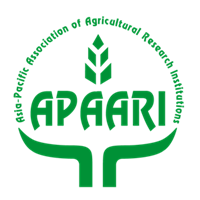Innovation Transfer into Agriculture - Adaptation to Climate Change (ITAACC). Result B: Assessment of the Demand-supply Match for Agricultural Innovations. North & West Africa Workshop Report
The GFA ITAACC final workshop in Nairobi was attended by more than 80 people comprising representatives of farmer organizations, NGOs, government, private sector and research institutions. The workshop proved to be an excellent platform for actors in the innovation system to share, discuss and validate the findings of the assessment of the match between needs and supply of agricultural innovations in Africa. This report summarizes the discussions and inputs from participants around the results that were presented.
Related Resources
Towards optimal coordination of the Chilean Agricultural Innovation System: Design for a MINAGRI Agricultural Innovation Coordination Unit
This is a study for developing long-term strategy for Chilean Innovation System

Report on Prioritization of Demand-driven Agricultural Research for Development in Bangladesh
The International Food Policy Research Institute (IFPRI) partnered with the Asia-Pacific Association of Agricultural Research Institutions (APAARI) in 2011 to conduct a series of policy dialogues on the prioritization of demand-driven agricultural research for development in South Asia. Dialogues were conducted with...
Impact assessment and the quest for the Holy Grail
This piece examines the prevailing thinking and trends in evaluation (specifically impact assessment), which is important for understanding how a contest of ideas has become something of a battleground in the quest for better evidence. It is particularly Impact assessment...
Status of Agricultural Extension and Rural Advisory Services Worldwide Summary Report
The International Food Policy Research Institute (IFPRI), working in collaboration with the University of Illinois (UIUC), FAO, and the Global Forum for Rural Advisory Services (GFRAS), developed the Worldwide Extension Study database as part of the assessment of the status...
Integrated Agricultural Research for Systems : Innovation Platforms (IP) of Agriculture Value Chains
This Guide is prepared based on the concepts, principles and practices of the innovation systems, with particular reference to integrated agricultural research for development (IAR4D) which uses innovation platforms (IPs) in agriculture value chains and food systems. The contents of...


